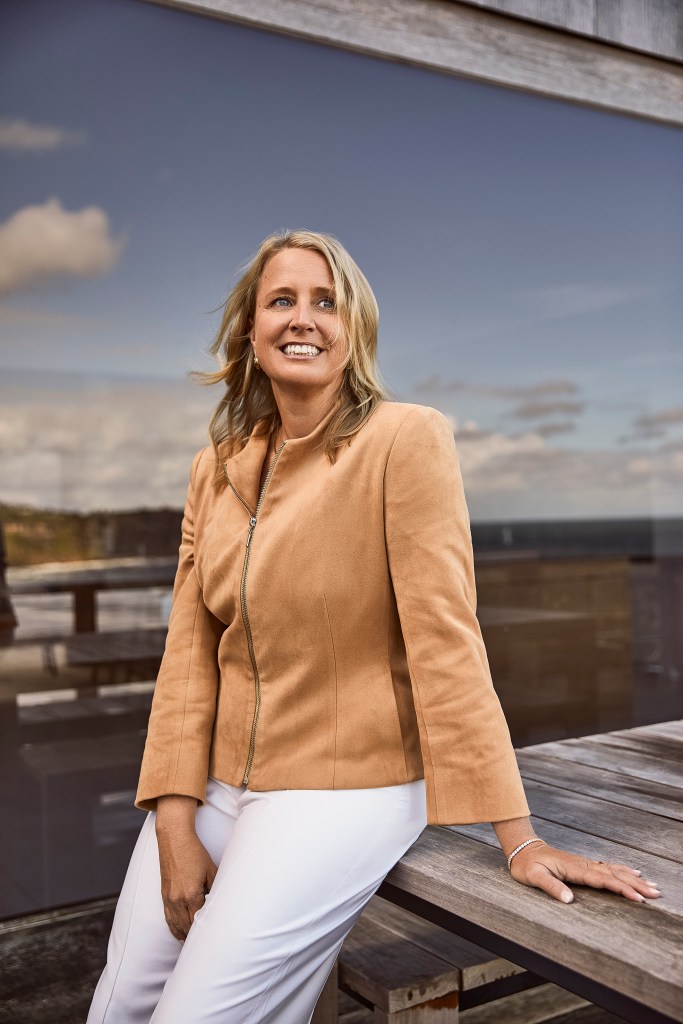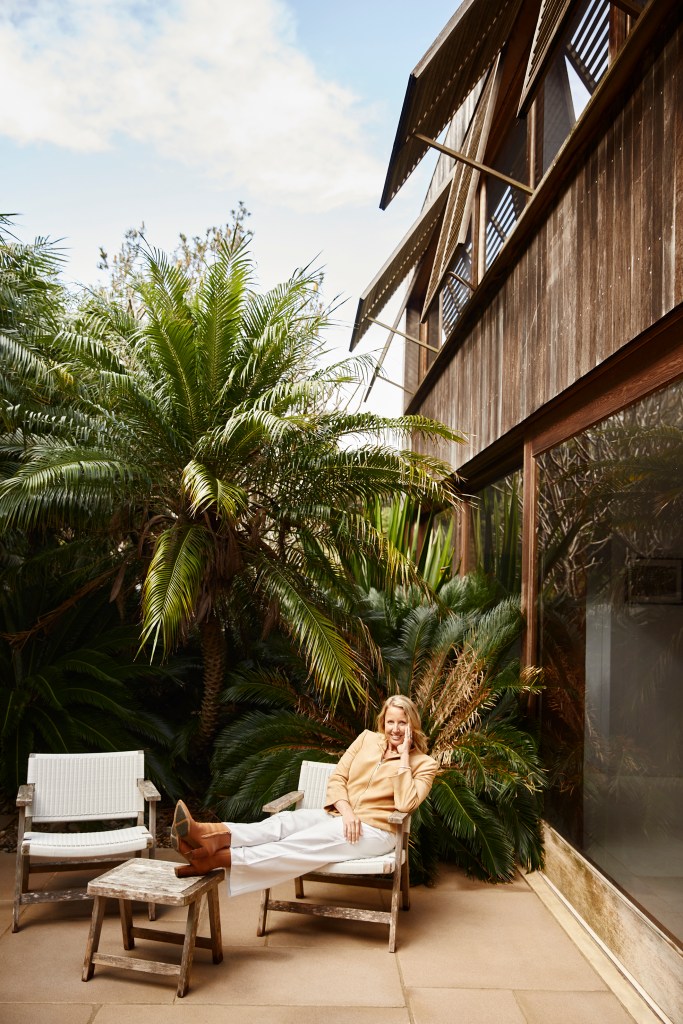This homegrown baby formula and food company has drawn some of the steepest line graphs of any cashflow statement the Australian Securities Exchange has seen.
Key Takeaways
- Bubs Australia – which listed on the ASX in 2017 – has grown by $48 million in three months.
- The product was born as an accident of sorts.
- Now Bubs’ infant formula products sold around the world, including in more than 5,400 stores across 34 US states.

The road to the home of Bubs Australia founder and CEO Kristy Carr is a white-knuckle ride through Sydney’s hilly Northern Beaches and creates a fitting image of the journey her company has been on.
Her homegrown baby formula and food company has drawn some of the steepest line graphs of any cashflow statement the Australian Securities Exchange (ASX) has seen. Revenue in the final quarter of FY2022 exceeded the entire previous year. Bubs Australia – which listed on the ASX in 2017 – has grown by $48 million in three months.
Sales are up 278% on the same quarter last year. Revenue from China alone has increased 523%, thanks in part to the lucrative Daigou channel – shopping agents in Australia who buy products on behalf of customers in China, then airmail them to the mainland.
The quarterly activities statement might give even a longtime investor vertigo.
“It’s been very, very exciting. An adrenaline-type ride,” Carr says, accepting one of the takeaway lattes that survived the journey. Finally, there’s a chance to take in the beachy interiors of her home. Floor-to-ceiling glass windows overlook foamy seas on a moody winter’s day.
“A lot of it has been dramatic and tear-jerking and disastrous, but most has been pretty positive,” she adds.
Carr laughs nervously at “tear-jerking”, then covers with a characteristic grin recognisable from almost any media featuring Bubs. (I’m told the Forbes photographer had an arm wrestle on his hands when he asked for some non-smiling options.) There’s been a fair bit of coverage this year.
In the US, a previously unbreakable fortress for formula exporters because of strict Food and Drug Administration (FDA) regulations, sales have exploded after the Australian brand flew to the rescue amid a catastrophic shortage of infant formula. Bacterial contamination in a US manufacturing centre in February shut down a large factory and forced a swathe of local products to be binned. One in five US states was suffering 90% stock shortages by June. In May, president Joe Biden announced a fast-tracked opportunity for global manufacturers to gain interim FDA approval to sell infant formula in the US – a process that usually takes years. Bubs was the first international company to respond.

The Biden administration resolved to charter empty Boeing 747s to Australia to move tens of thousands of Bubs’ canned infant formula across the Pacific under “Operation Fly Formula”. The extraordinary deal is expected to deliver more than $55 million in sales in six months; the first six planes accounting for $21 million.
“It’s not every day the US President rings your office, asking for as much product as you can send,” says Mark Rudder, chair of former federal treasurer Joe Hockey’s advisory firm Bondi Partners.
Rudder runs publicity for Bubs separately through his public relations firm. It’s a job that was somewhat snatched out of his hands amid the recent chaos as hordes of US journalists were waiting on the airport runway when the first plane landed. They mobbed Carr when she arrived on a subsequent flight. President Biden tweeted: “27.5 million bottles of safe infant formula manufactured by Bubs Australia are coming to the United States.” The brand became headline news.
“We were forecasting to grow from $46.8 million in the 2020-21 financial year, to around $80 million in the 2021-22 financial year, but that was before everything happened in the US,” Katrina Rathie, a Bubs board member, lawyer and former partner of King & Wood Mallesons, says.
“When we publicly listed, we had five employees. Now we have 75, and we’re recruiting every week,” Carr says.
“We really have a high-growth agenda. It’s not exactly normal for consumer goods. It’s normal for tech companies. But you can’t act like a normal consumer goods company if you’re trying to achieve that level of growth. It requires real agility. You have to be willing to take on risks.”
If her cliff-like driveway is a metaphor of the wild ride Bubs has been on, it’s also fitting that Forbes meets Carr in the same suburb where her infant nutrition products were conceived.
Carr was born in Newcastle, in New South Wales, grew up in Brisbane and still feels most at home at the beach. She studied a business degree at the Queensland University of Technology then moved to Sydney for her first professional job, working for advertising giant John Singleton in the 1990s.
Carr spent a short stint living in a cramped share house in eastern Sydney. She upgraded after meeting her now-husband Jeremy on day one with Singleton.
“It’s not every day the US President rings your office, asking for as much product as you can send.”
– Mark Rudder, chair of former federal treasurer Joe Hockey’s advisory firm Bondi Partners.
The colleague-turned-boyfriend coaxed Carr to Newport, where they now reside with three daughters and a border collie, Shadow.
The family’s current digs is an upgrade from a previous tri-level home at the south end of Newport. That one had an internal lift and northerly views over the beach, and reportedly sold for something in the realm of $4.5 million in 2019.
“This is a Bubs upgrade, for sure,” Carr says, gesturing across the sandy-coloured wood dining table at cream leather lounges and a 180-degree view over the turbulent ocean.
“[When Bubs started], we didn’t have this view and didn’t have to walk that driveway. I had really taken almost nothing out of the business until we listed, and only then started paying myself a salary – not even an exciting one initially.”
It was just around the corner in a much smaller abode that, in 2006, Carr packed the first pouches of Bubs’ organic baby food into the boot of a station wagon to sell at Newport weekend markets. Her first customers – friends and family – became original shareholders when the company later went public.
The product was born as an accident of sorts.
Carr was stumbling through the all-consuming first months of motherhood, back in Newport after giving up a role in Hong Kong as a marketing executive for Cathay Pacific.
Attempts at blending vegetables for her daughter, Chloe – who sprayed them all over the wall – inspired Bubs’ organic baby food. Bubs’ easy-digesting goat milk formula, now the top-selling goat formula brand across Australia’s big retailers, Coles, Woolworths and Chemist Warehouse, was the answer to Chloe’s allergies as she transitioned from breast milk.
“I’ve always been quite entrepreneurial. As a kid, I had many lemonade stands,” she says.
“I remember once when my parents came home from the US with all this Disney paraphernalia because they felt so guilty that they’d gone to Disneyland without their kids. So, I set up a little cul-de-sac store and made quite a bit of profit selling it.
“It wasn’t so much about being my own boss. I just really liked the idea of creating something.”
Work and life tend to meld into one when you’re the CEO and founder of a company experiencing such a spectacular growth spurt. Carr has been known to sleep at the office. Like when the team went into war-room mode for Operation Fly Formula. Her team hashed out a response plan – which they dubbed Operation Maverick while the new Top Gun was hitting cinemas – over 24 hours, fuelled by “about nine Uber Eats deliveries”.
The pandemic delivered a brutal shock in 2020 when border closures burst the bubble of previous panic buying of infant formula, and the Daigou sales channel to China collapsed. Bubs’ share price plummeted. Carr says she managed to retain all staff, reduce manufacturing, and “cling on”.
But while other retail businesses have been slow to reconnect breaks in supply chains, Bubs has a strong foothold in the entire chain right back to the farm gate – from exclusively owning the milk of about 13,000 goats on farms across Victoria and New Zealand, to controlling its canning and manufacturing facility in Dandenong.
“It’s a pretty unique supply chain – infant formula – it can’t be stockpiled, it’s perishable, there are very long lead times, and safety is more paramount than any other food manufacturing. This is the most highly safeguarded food manufacturing there is. This is what has been exposed in America,” Carr explains.
Prior to the current crisis in the US, Carr estimated that just 2% of retail infant formula stocks came from imported brands. More than 90% of US brands relied on just four manufacturers, and the plant that closed had a major share of the market. When the US government came knocking, Bubs’ vertical integration of its supply chain meant the company could sail through as retail and regulatory floodgates opened.
Carr spoke with Forbes in July, while the company was in the middle of a capital raising venture for $63 million to invest in working capital, inventory and to triple its output to meet the skyrocketing demand.
Of that, the original $32 million institutional placement offer appears to have been a low-ball, considering it was oversubscribed and Bubs had secured $40 million within days. The retail entitlement offer closed on $30.6 million on 26 July.
“I used to dream about being a one million [dollar business]; now I’m thinking, what’s next? We’ll be at one billion thinking, what’s next. And I think that’s within reach now,” Carr says.
But no matter what heights her company reaches, there remains a down-to-earth approachability about this maverick CEO.
An Ugg-boot-clad neighbour makes this clear when he clops into the home in the middle of our interview (the front door has been left unlocked). Unperturbed, he announces he’s “looking for Rendang”.
Carr jumps up to help him locate a Tupperware container of her housekeeper’s apparently famous curry and the neighbour strolls back out with a wave.
Operation Fly Formula
A timeline:
7 February – The largest manufacturer of baby formula in the US recalls dozens of brands.
Abbott’s Sturgis plant in Michigan, which supplies a big chunk of the country’s infant formula, closes.
16 May – FDA issues industry guidance of intention to exercise enforcement discretion.
17 May – Bubs becomes the first manufacturer in the world to submit an application to the FDA
as Record No. 001.001.
27 May – The FDA approves Bubs to import infant formulas into the US and President Biden tweets the good news that “27.5 million bottles of safe infant formula manufactured by Bubs Australia are coming to the United States”.
11 June – First Boeing 747 flight stocked with about 300 pallets of Bubs formula leaves Melbourne headed to Los Angeles.
20 Jun – First Bubs products appear on shelves in US retail stores.
7 July – FDA commits to long-term, streamlined approval framework for Bubs to continue selling infant formula beyond November 2022.
22 July – Sixth flight leaves Melbourne for the US, carrying 90,000 tins.
Now – Bubs’ infant formula products sold in more than 5,400 stores across 34 US states.